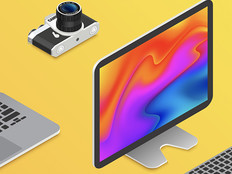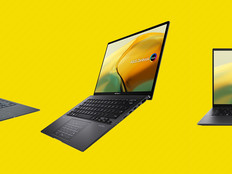Review: DameWare Mini Remote Control
Remote administration is a concept that nearly all of us are familiar with in one way or another. If you are running a Windows-based shop, you probably already know that there are numerous remote administration options ranging in cost from free to more than $75 per client. Like anything in IT — cost can be subjective, and a larger price is not always indicative of greater quality or features that will be relevant to your needs. Ultimately making an informed purchasing decision requires research that will help you find a solution that caters to both the requirements and the limitations of your specific environment.
Many remote administrative solutions can give the user very basic functionality with a low price. Microsoft Outlook Remote Access plug-in, for example, allows administrators to shut down a remote machine, run and close programs, retrieve files and send e-mail commands. On the other end of the spectrum, there are solutions, like pcAnywhere 12.0, that many IT professionals can't live without, yet others may consider to be "too much" software for their specific needs. Not everyone needs a program that is over 30MB in size and has features such as host invitation, chat or tabbed navigation of open sessions. Somewhere between these two extremes, one will find DameWare Mini Remote Control by DameWare Development LLC. Think of Mini Remote Control (MRC) as both the host and remote software, packaged in one small, 8MB MSI installer. Don't let the size fool you: MRC boasts many features that its larger-budget peers have — at a small fraction of the price.
Before I explain the licensing, I want you to ask yourself this: When was the last time I found that my most positive impression of a company or its products stemmed from its benevolent licensing scheme and reasonable prices? Unlike other remote admin tools, DameWare does not require a license per computer managed, and instead charges per administrator. For example, MRC sports a $120 price tag for each administrator, so an IT shop of five administrators can support an infinite number of PC users for only $600. Not even most low-end remote administration packages can compete with that kind of ROI. PcAnywhere starts at $150 per PC.
Out-of-the-Box Functionality
Being a cynic, I normally do not give credence to phrases such as "36 Easy Payments" and "Your call is very important to us," but "out-of-the-box functionality" is the only way I can think to describe my experience with DameWare. After running the "accept all defaults" installation, all I had to do to connect to a machine was launch the program. That's because MRC offers the ability to install itself remotely on the fly onto a prospective client PC if the server program is not already installed. (See Figure 1.) As a lifelong user of products that mandate that the host service must be installed, configured and running before a connection is possible, I find this feature absolutely invaluable, saving myself both the time and hassle of remotely supporting installation. Sparing oneself a phone call here and there adds up quickly when scaled across a large WAN environment. One should note that this feature is only available when connecting to Windows NT, Windows 2000 and Windows XP Professional PCs. Users of other versions of Windows will need to download and install the stand-alone Mini Remote Control application.
One other feature of MRC that won me over was its incredibly simple file transfer support. Simply right-click on any file while connected to the remote computer and select the "Copy to remote host:" option from the context menu that appears. Next, right-click on the backup.pst file in the background and navigate the context menu. If you click the "Copy to…" option, this file will in turn be copied to the "Downloads" folder, which you can specify in the program's global options applet.
Is This Thing On?
Something I frequently find myself doing before connecting to a remote machine is opening a command prompt and pinging it by UNC name or IP address to ensure that it is on before I go to the trouble of connecting to it. The minds behind MRC are apparently hip to this, because they were intuitive enough to include a cool "ping" tool that will allow you to ping the prospective host before attempting connection. This is another cool feature that makes you wonder why nobody thought of it before. There is even an option to connect upon reply, which can save even more time.
DameWare Mini Remote Control is an extremely useful tool that I feel would be a credit to any support technician/administrator's arsenal. Offerings such as DameWare Mini Remote Control may very well shake things up, much the way Firefox has done in the browser market.
But there are some small kinks. First, my frame rate is not as good using MRC as with other products. It is noticeably slower, about equal to pcAnywhere. Second, DameWare does not offer live phone support (though it does offer Web chat support). My only other complaint with the software is a lack of an integrated chat client. Weighed against its benefits, however, these minor issues will not constitute a deal breaker, but perhaps something for DameWare Development to research for the next version.
Though this review touches on only a few of the more useful features MRC brings to the table, I encourage anyone who wants to learn more to visit their Web site and download the fully functional 30-Day evaluation copy.






